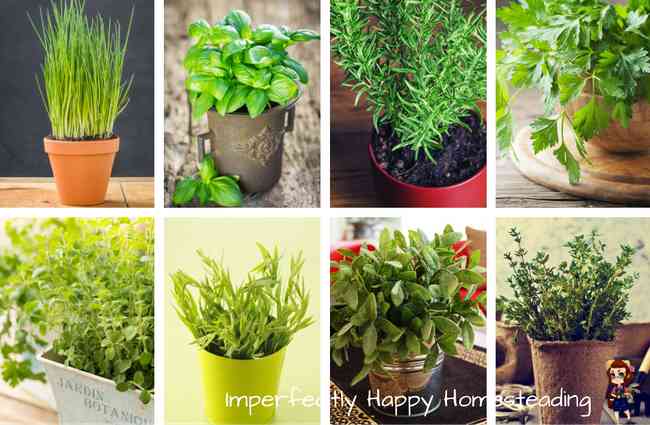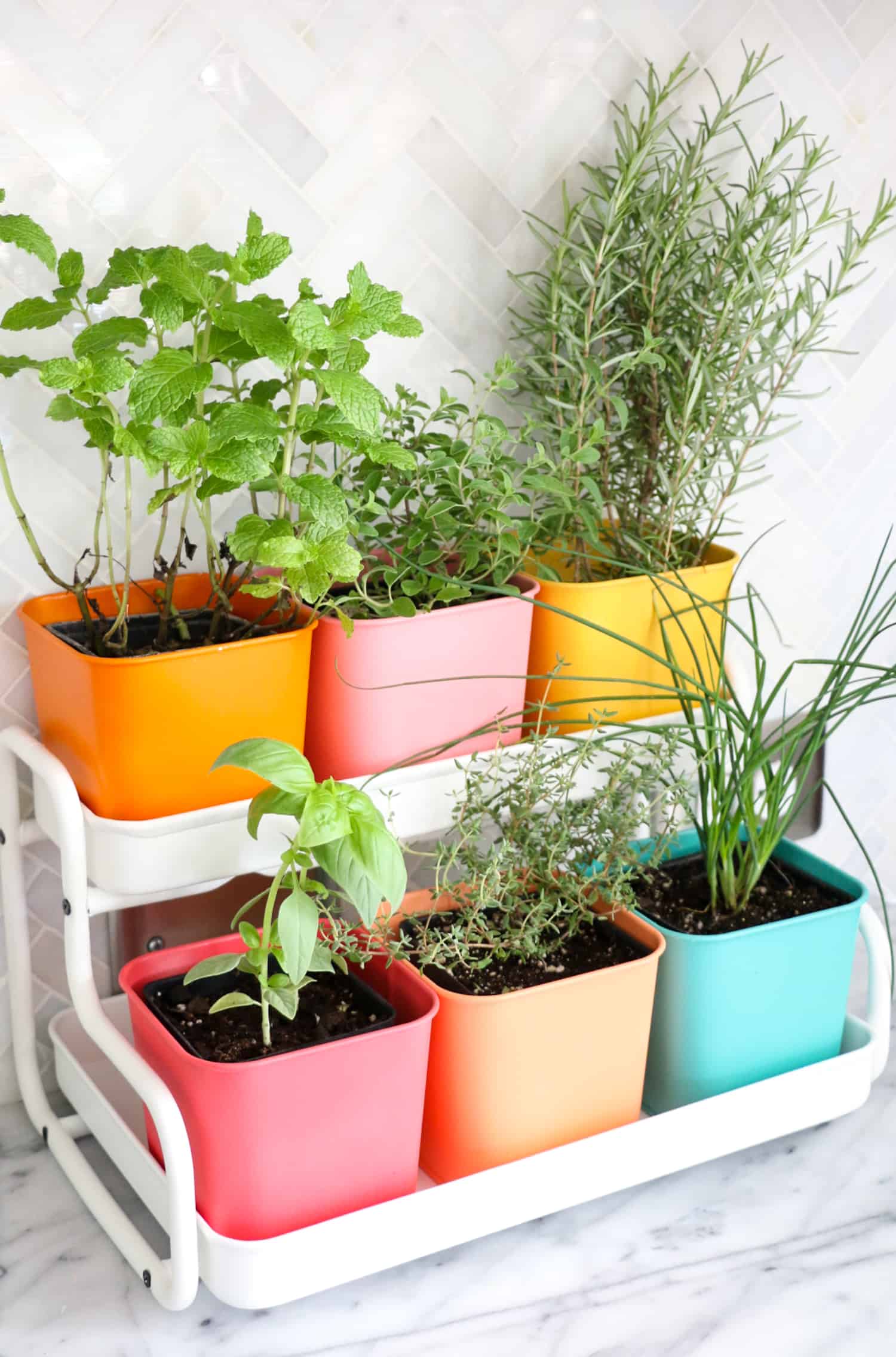Grow Herbs Indoors All Year: Easy Guide

Are you dreaming of a lush, fragrant herb garden but lack the outdoor space? Do you wish you could enjoy fresh herbs year-round, regardless of the weather? The good news is, you can! Growing herbs indoors is not only possible but also incredibly rewarding. With a little know-how and some basic indoor plant care, you can cultivate a thriving indoor herb garden that will add flavor to your meals and beauty to your home. Let's dive into the world of year-round herb cultivation and discover how to grow herbs indoors all year.
Why Grow Herbs Indoors?
Growing herbs indoors offers numerous benefits. Firstly, you have a constant supply of fresh herbs at your fingertips, enhancing the flavor of your meals. Secondly, indoor herb gardens can improve air quality and add a touch of greenery to your living space. Lastly, herb cultivation can be a therapeutic hobby, providing a sense of accomplishment and connection to nature.
Essential Tools for Indoor Herb Gardening
Before you start, gather the essential tools:
- Pots and Containers: Choose pots with drainage holes to prevent root rot.
- Soil: Use well-draining potting mix specifically designed for herbs.
- Light: Ensure your herbs get plenty of sunlight or invest in grow lights.
- Watering Can: A small watering can with a narrow spout is ideal for precise watering.
- Fertilizer: Opt for a balanced, organic fertilizer to keep your herbs healthy.
Choosing the Right Herbs
Not all herbs thrive indoors, so it's crucial to select the right ones. Some of the best herbs for indoor cultivation include:
- Basil: Loves sunlight and warmth.
- Parsley: Thrives in bright, indirect light.
- Mint: Prefers partial shade and moist soil.
- Rosemary: Needs plenty of sunlight and well-draining soil.
- Thyme: Enjoys bright light and dry conditions.
Setting Up Your Indoor Herb Garden
Location, Location, Location
The key to successful indoor herb cultivation is finding the right spot. Herbs need plenty of light, so place them near a south-facing window if possible. If natural light is limited, consider using grow lights to supplement.
Soil and Drainage
Use a well-draining potting mix to prevent waterlogging. Ensure your pots have drainage holes to allow excess water to escape. This is crucial for preventing root rot, which can quickly kill your herbs.
Temperature and Humidity
Most herbs prefer temperatures between 65-75°F (18-24°C) during the day and slightly cooler at night. Maintain moderate humidity levels, and avoid placing herbs near heat sources or drafts.
Watering and Fertilizing
Watering Techniques
Water your herbs when the top inch of soil feels dry. Overwatering is a common mistake that can lead to root rot. Use a watering can with a narrow spout to water the soil directly, avoiding the leaves.
Fertilizing Tips
Herbs don't require much fertilizer, but a balanced, organic fertilizer can boost growth. Apply it every 4-6 weeks during the growing season. Avoid over-fertilizing, as this can lead to excessive leaf growth at the expense of flavor.
Harvesting and Pruning
When to Harvest
Harvest herbs when they are young and tender for the best flavor. Regularly pinch back the tips of the plants to encourage bushier growth and prevent them from becoming leggy.
Pruning Techniques
Pruning helps maintain the shape and health of your herbs. Remove any dead or yellowing leaves and trim back overgrown stems. This will promote new growth and keep your herbs looking their best.
Troubleshooting Common Issues
Pests and Diseases
Indoor herbs can be susceptible to pests like aphids and spider mites. Regularly inspect your plants and treat any infestations promptly with insecticidal soap or neem oil.
Overwatering and Underwatering
Overwatering can lead to root rot, while underwatering can cause your herbs to wilt and die. Check the soil moisture regularly and adjust your watering schedule as needed.
Lighting Problems
If your herbs are not getting enough light, they may become leggy and pale. Move them to a brighter location or supplement with grow lights.
Advanced Herb Growing Techniques
Propagation
Many herbs can be propagated from cuttings or seeds. This is a great way to expand your indoor herb garden without spending more money.
Hydroponics
Hydroponic systems allow you to grow herbs without soil, using a nutrient-rich water solution. This method can be more efficient and less messy than traditional soil-based gardening.
Vertical Gardening
Vertical gardens are a space-saving solution for small apartments. You can use wall-mounted planters or hanging baskets to create a lush, vertical herb garden.
Conclusion
Growing herbs indoors all year is not only possible but also incredibly rewarding. With the right tools, techniques, and a bit of patience, you can cultivate a thriving indoor herb garden that will enhance your meals and beautify your home. Whether you're a seasoned gardener or a beginner, indoor herb cultivation is a fulfilling hobby that connects you with nature. So, why wait? Start your indoor herb garden today and enjoy the fruits of your labor year-round.
FAQs
What are the best herbs to grow indoors?
- Some of the best herbs for indoor cultivation include basil, parsley, mint, rosemary, and thyme. These herbs are relatively easy to grow and thrive in indoor conditions.
How much light do indoor herbs need?
- Most herbs need at least 6-8 hours of bright light per day. Place them near a south-facing window or use grow lights to supplement natural light.
How often should I water my indoor herbs?
- Water your herbs when the top inch of soil feels dry. Overwatering is a common mistake, so it's better to err on the side of underwatering.
Can I grow herbs in a hydroponic system?
- Yes, many herbs can be grown hydroponically. This method uses a nutrient-rich water solution instead of soil and can be more efficient and less messy.
What should I do if my herbs become leggy?
- If your herbs become leggy, it's likely they are not getting enough light. Move them to a brighter location or supplement with grow lights. Regularly pinch back the tips to encourage bushier growth.


0 Response to "Grow Herbs Indoors All Year: Easy Guide"
Post a Comment